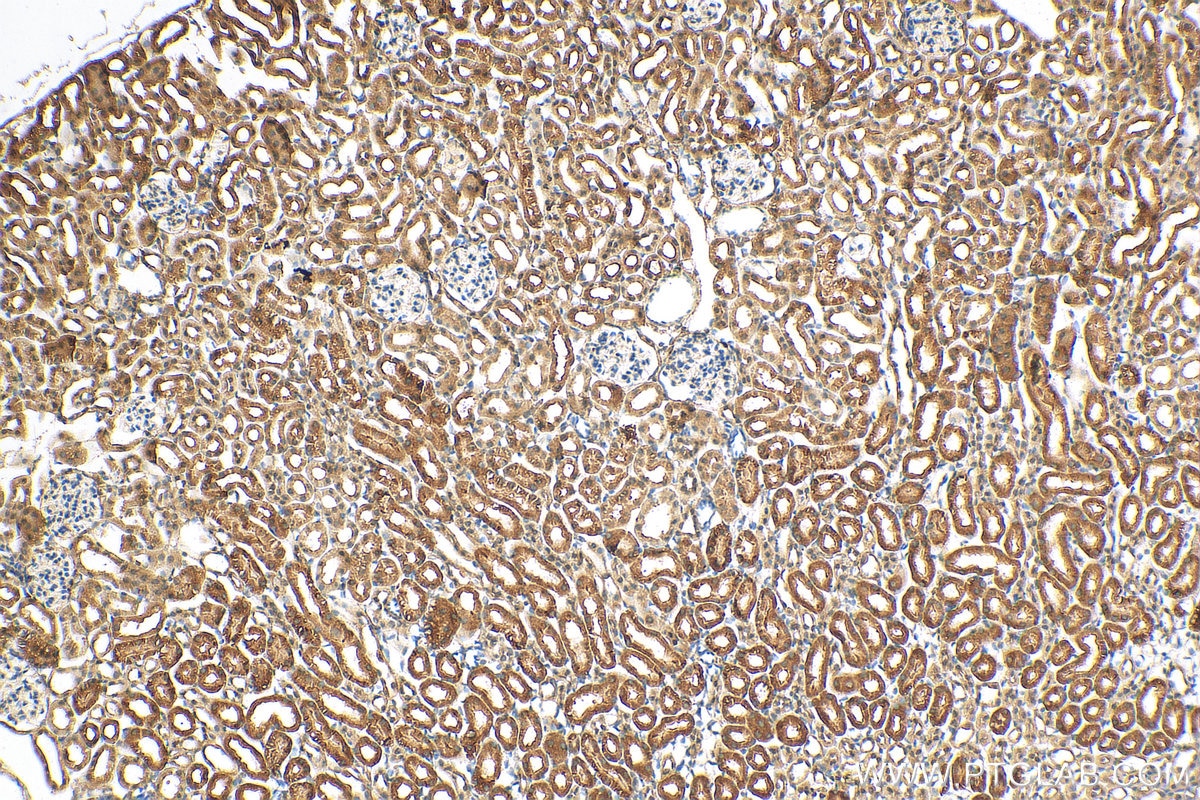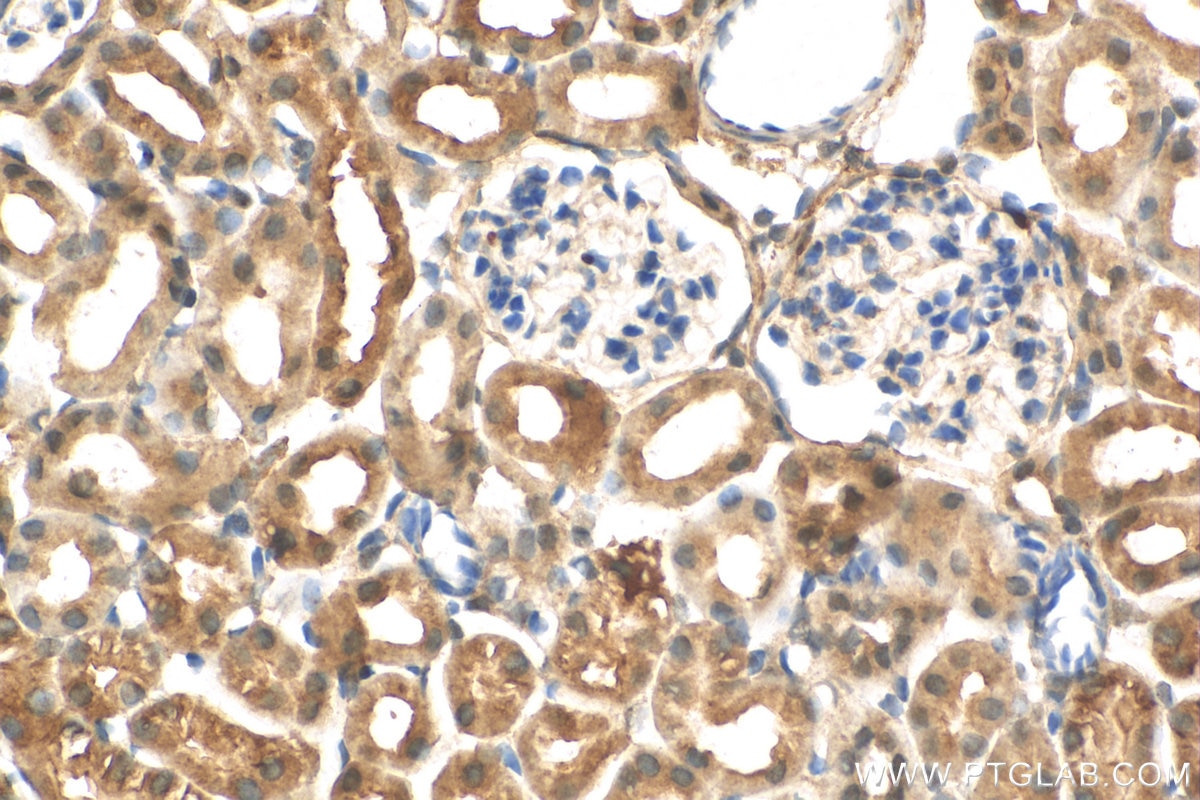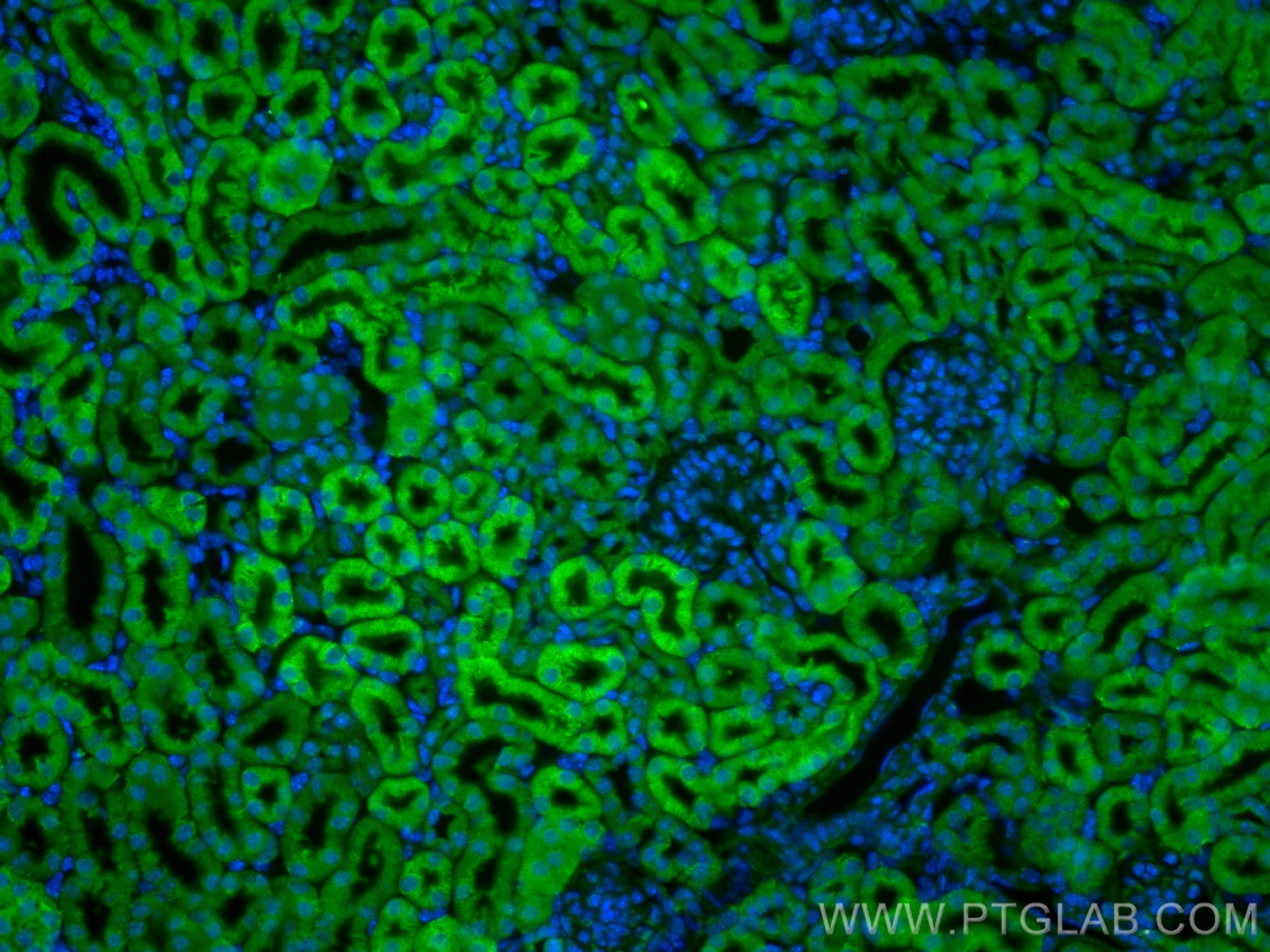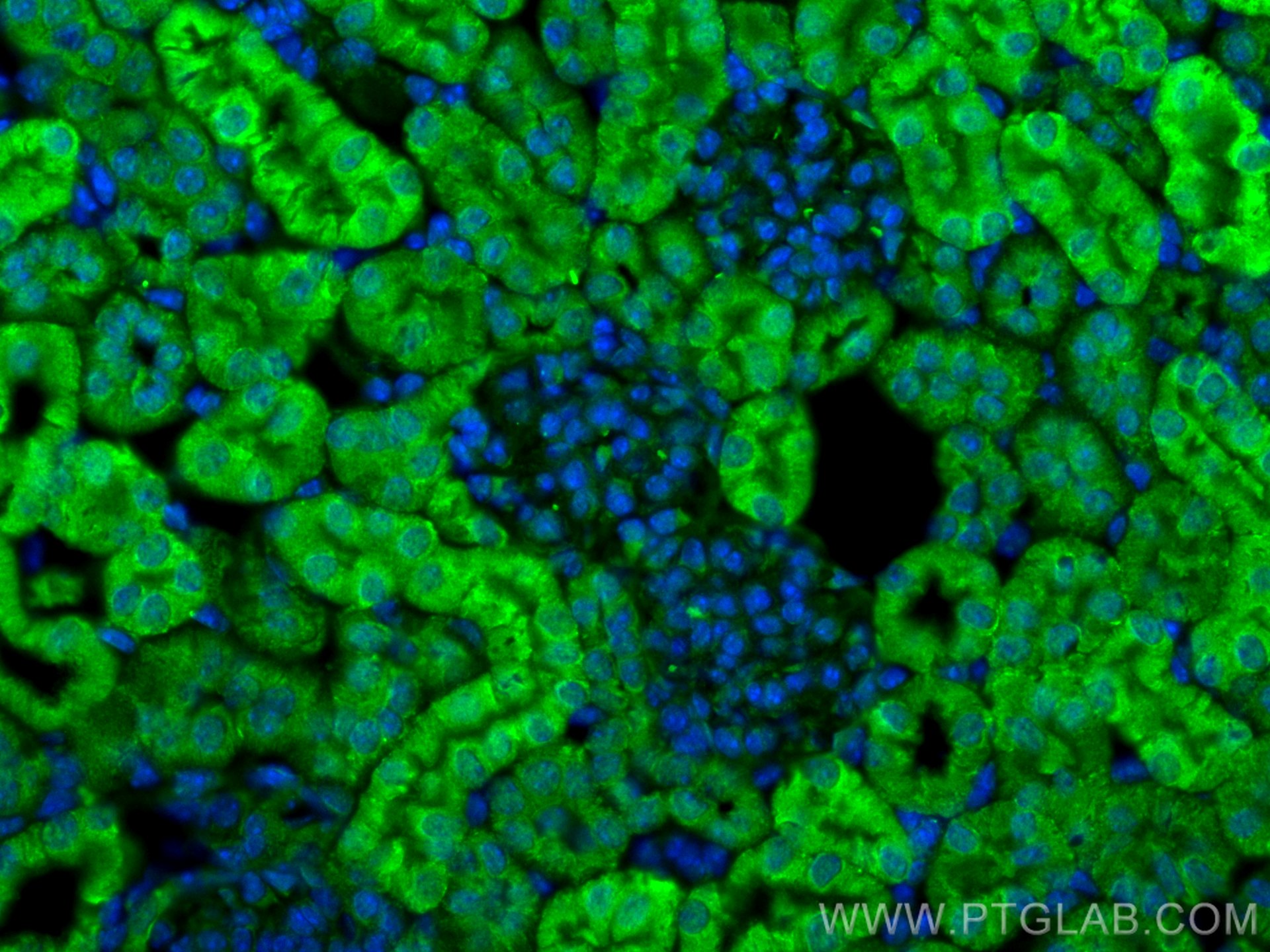Tested Applications
| Positive IHC detected in | mouse kidney tissue Note: suggested antigen retrieval with TE buffer pH 9.0; (*) Alternatively, antigen retrieval may be performed with citrate buffer pH 6.0 |
| Positive IF-P detected in | mouse kidney tissue |
Recommended dilution
| Application | Dilution |
|---|---|
| Immunohistochemistry (IHC) | IHC : 1:50-1:500 |
| Immunofluorescence (IF)-P | IF-P : 1:50-1:500 |
| It is recommended that this reagent should be titrated in each testing system to obtain optimal results. | |
| Sample-dependent, Check data in validation data gallery. | |
Product Information
30247-1-AP targets C1orf54 in IHC, IF-P, ELISA applications and shows reactivity with Human, mouse samples.
| Tested Reactivity | Human, mouse |
| Host / Isotype | Rabbit / IgG |
| Class | Polyclonal |
| Type | Antibody |
| Immunogen | C1orf54 fusion protein Ag32876 Predict reactive species |
| Full Name | chromosome 1 open reading frame 54 |
| GenBank Accession Number | BC017761 |
| Gene Symbol | C1orf54 |
| Gene ID (NCBI) | 79630 |
| RRID | AB_3086279 |
| Conjugate | Unconjugated |
| Form | Liquid |
| Purification Method | Antigen affinity purification |
| UNIPROT ID | Q8WWF1 |
| Storage Buffer | PBS with 0.02% sodium azide and 50% glycerol, pH 7.3. |
| Storage Conditions | Store at -20°C. Stable for one year after shipment. Aliquoting is unnecessary for -20oC storage. 20ul sizes contain 0.1% BSA. |
Background Information
C1orf54 is a newly identified protein encoded by an open reading frame on chromosome 1. C1orf54 is highly expressed in healthy mouse kidneys and is only expressed in tubular epithelial cells (TECs), not in glomeruli(PMID: 29999589). C1orf54 promotes renal repair and TEC proliferation through PI3K/AKT signalling, which alleviates kidney damage after ischaemia‐reperfusion injury (IRI) (PMID: 29999589).
Protocols
| Product Specific Protocols | |
|---|---|
| IHC protocol for C1orf54 antibody 30247-1-AP | Download protocol |
| IF protocol for C1orf54 antibody 30247-1-AP | Download protocol |
| Standard Protocols | |
|---|---|
| Click here to view our Standard Protocols |









